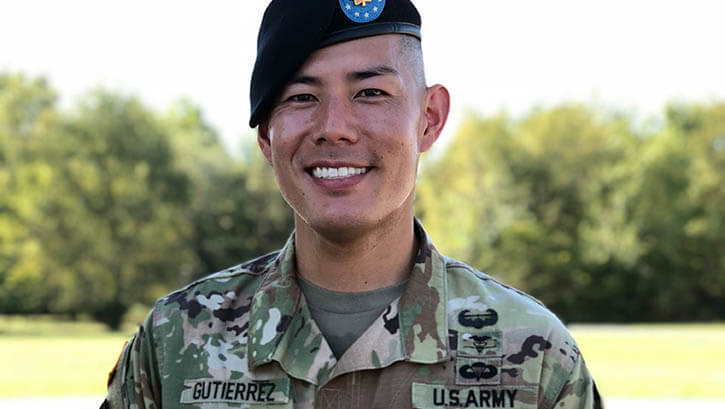A Deployed Dentist Recalls His 'One-Chair' Clinic in Afghanistan
 Army Lt. Col. (Dr.) Andrew Gutierrez did a tour of duty as a dentist downrange in Afghanistan. (Courtesy of Army Lt. Col. Andrew Gutierrez)
Army Lt. Col. (Dr.) Andrew Gutierrez did a tour of duty as a dentist downrange in Afghanistan. (Courtesy of Army Lt. Col. Andrew Gutierrez)
When a dentist is available downrange, word spreads fast.
That's because when you're on deployment for six to 12 months at a time, and something goes wrong with your teeth or mouth, getting to the dentist is a top priority.
"The soldiers knew whether there was a dentist on base. Those who needed something found me," said Army Lt. Col. (Dr.) Andrew Gutierrez.
Gutierrez is one of the military dentists who was in Afghanistan at the height of combat operations and provided care to service members on deployment. In 2011, Gutierrez and one dental technician were stationed at a clinic at Camp Stone in Herat, a city near Afghanistan's western border.
Gutierrez's clinic was a one-chair operation. The chair was similar to what you might see stateside. But the power to run his dental equipment came from a portable field generator. He also had X-ray capabilities and a small dental lab.
"I had pretty much everything I needed to take care of most issues that arose, from repairing fillings or chipped teeth to draining abscesses or extracting teeth," he recalled.
"Most issues were not that serious. But often soldiers found they had a little bit more time to invest in taking care of dental issues," Gutierrez said, "whether that was needing a few fillings or getting a cleaning."
"Good oral health in-theater means not having any diseases or problems that affect a soldier's ability to function, whether that be daily activities such as eating, drinking, speaking, or the ability to accomplish the mission," he said.
"I felt like I was able to educate our soldiers on the importance of oral health while downrange just because I was there with them," he explained.
"I do think maintaining oral health downrange can be difficult. Dental treatment isn't the biggest hurdle, but rather personal habits are," Gutierrez said.
"The stress encountered by soldiers during a deployment can put one's oral health low on the list of priorities."
On deployment, "soldiers are away from family, potentially not getting enough sleep, not having a good routine, and that is why remembering to brush or floss your teeth or eating well can go by the wayside," he said.
Gutierrez joined the military through the Army's Health Professions Scholarship Program. Each service has a similar program for medical and dental students.
He is now the Oral and Maxillofacial Surgery assistant program director at Tripler Army Medical Center in Honolulu, Hawaii.